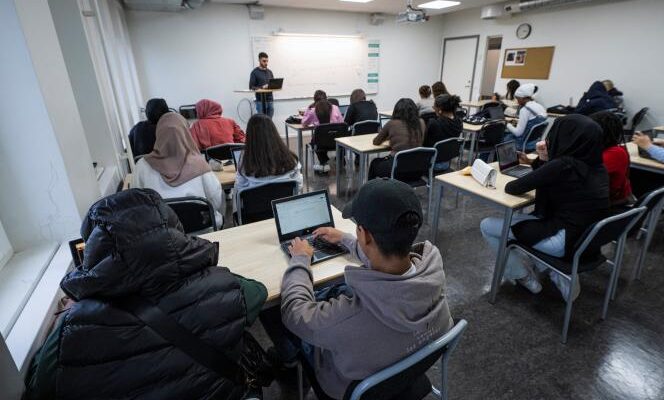LETTER FROM MALMÖ
The school year is coming to an end and young Swedes will soon receive their report cards. For students of 9e (last year of college) and 3e (the equivalent of 12th grade), grades will determine which high school or college they attend next year. But what are these notes worth? Do they reflect the level of the student, or have they been inflated by the teachers or the principal, in order to embellish the results of the establishment?
In Sweden they are called “glädjebetyg” – the “notes of happiness”. Although the phenomenon is not recent, it has grown to such an extent in recent years that the rector of the Stockholm Business School, one of the most prestigious higher education establishments in the Swedish capital, has banged his fist on the table, May 11. In a vitriolic column published in the daily Dagens NyheterLars Strannegard threatens, if nothing changes, to establish a competition at the entrance to his school.
He denounces notes “transformed into a kind of commodity, decoys with the aim of attracting future students”, and considers that it is now impossible to be sure that ” these are the good students who get into the most sought-after universities after completing their upper secondary education”. For Lars Strannegard, “the very pillars of the Swedish social model” what are ” meritocracy, equality and trust” are in danger, and eventually, ” democracy “.
Pressure from students and their parents
This gigantic rant has all the more caused a sensation in Sweden as the rector cites several establishments suspected of inflating the notes, among which are the high schools attended by the offspring of the fine flower of Swedish society. Example: Campus Manilla, in the district of Djurgarden, in Stockholm, where the two children of Crown Princess Victoria are educated.
In March, the School Inspectorate had criticized the private school, managed by a foundation, after having noted significant discrepancies between the final marks of the pupils and their results in the national examination, supposed to evaluate their level in five main subjects. Teachers had admitted to being pressured by students and their parents to change grades. Two months later, the school found itself at the heart of a new scandal, when a fifth of the students in its high school classes were suspected of having regularly cheated on exams.
But Campus Manilla is far from being the only establishment in question. According to the SVT channel, the School Inspectorate has examined thirty public and private high schools in recent months. However, none were able to demonstrate that they had taken adequate measures to avoid the “happiness notes”. The same goes for the State, whose various initiatives in this area have had no impact, according to a report by the National Directorate for Public Management Control, dating from October.
You have 50.46% of this article left to read. The following is for subscribers only.
